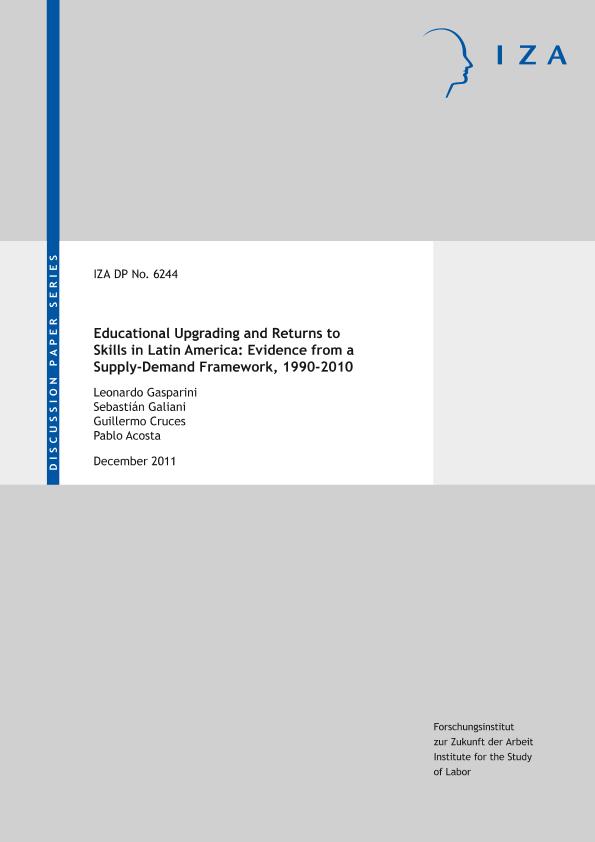Artículo
Educational Upgrading and Returns to Skills in Latin America: Evidence from a Supply-Demand Framework, 1990-2010
Fecha de publicación:
12/2011
Editorial:
IZA - Institute of Labor Economics
Revista:
IZA Working Paper Series
ISSN:
0317-8471
Idioma:
Inglés
Tipo de recurso:
Artículo publicado
Clasificación temática:
Resumen
It has been argued that a factor behind the decline in income inequality in Latin America in the 2000s was the educational upgrading of its labor force. Between 1990 and 2010, the proportion of the labor force in the region with at least secondary education increased from 40 to 60 percent. Concurrently, returns to secondary education completion fell throughout the past two decades, while the 2000s saw a reversal in the increase in the returns to tertiary education experienced in the 1990s. This paper studies the evolution of wage differentials and the trends in the supply of workers by educational level for 16 Latin American countries between 1990 and 2000. The analysis estimates the relative contribution of supply and demand factors behind recent trends in skill premia for tertiary and secondary educated workers. Supply-side factors seem to have limited explanatory power relative to demand-side factors, and are only relevant to explain part of the fall in wage premia for high-school graduates. Although there is significant heterogeneity in individual country experiences, on average the trend reversal in labor demand in the 2000s can be partially attributed to the recent boom in commodity prices that could favor the unskilled (non-tertiary educated) workforce, although employment patterns by sector suggest that other within-sector forces are also at play, such as technological diffusion or skill mismatches that may reduce the labor productivity of highly-educated workers.
Palabras clave:
Skill Premia
,
Supply And Demand of Labor
,
Income Inequality
,
Latin America
Archivos asociados
Licencia
Identificadores
Colecciones
Articulos(CCT - LA PLATA)
Articulos de CTRO.CIENTIFICO TECNOL.CONICET - LA PLATA
Articulos de CTRO.CIENTIFICO TECNOL.CONICET - LA PLATA
Citación
Gasparini, Leonardo Carlos; Galiani, Sebastián; Cruces, Guillermo Antonio; Acosta, Pablo A.; Educational Upgrading and Returns to Skills in Latin America: Evidence from a Supply-Demand Framework, 1990-2010; IZA - Institute of Labor Economics; IZA Working Paper Series; 6244; 12-2011; 1-54
Compartir




